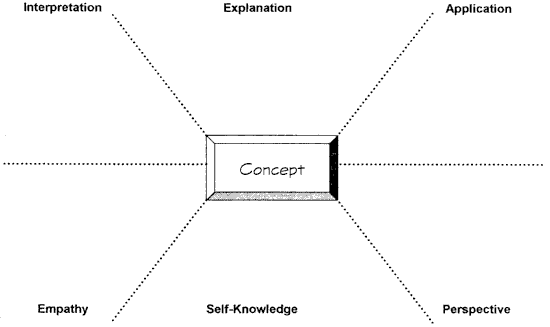|
Home Hub Sites Map-Projects Our Process Checklists Original Unit and Lesson Plan Organizer Sample Standards ActiveClassroom Tours National Digital Library Introduction Sample Workshop CGLi Web National Curriculum Institute Learning Guide Previous Institutes Units of Practice CCTT Units CGLi Units PowerPoint Presentations FETC1998 FETC1999 FETC2000 Yearly Summaries Year 1 Year 2 Year 3 Evaluation Year 4 Evaluation Year 5 Evaluation Final Report |
 Wednesday, February 25, 2026 |
||||||||||||||||||||||
|
Introduction: Essential questions can be used to focus the unit study. They remind students of the understanding they are trying to reach. Essential Questions:
Directions: Use the following template to write essential questions that focus on each of the six facets of understanding (Wiggins and McTighe)
Adapted from Understanding by Design Institute, Grant Wiggins and Jay McTigne |
